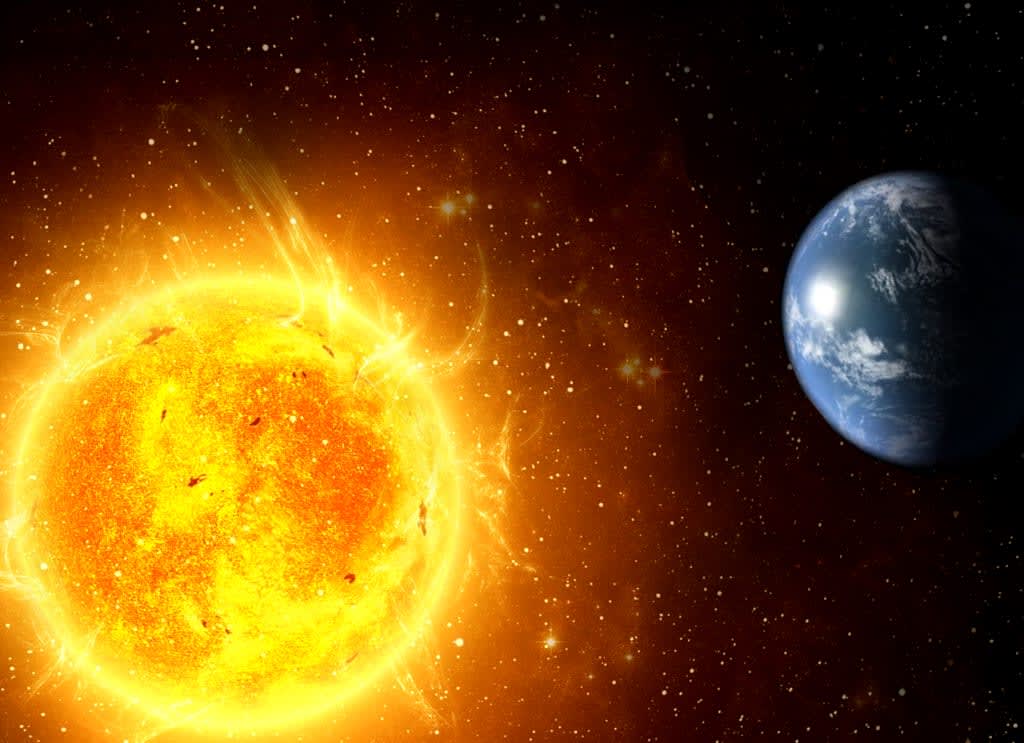Goodbye Sun!
What would happen if sun disappeared?

Have you ever wondered what would happen if Sun disappeared..If you don't read this article till the end
The sun is a vital part of our solar system, and its disappearance would have a significant impact on Earth and the rest of the planets. The sun is a massive, extremely hot ball of gas that provides energy to our planet in the form of light and heat. It is also the center of the solar system, around which all the planets, including Earth, revolve. If the sun were to suddenly disappear, it would have catastrophic consequences that would affect every aspect of life on Earth.
The first and most immediate impact of the sun's disappearance would be the absence of sunlight. The sun is responsible for providing light and heat to our planet, and its sudden disappearance would cause the temperature to plummet instantly. Within a matter of days, the Earth's surface temperature would drop to -273°C, which is the temperature of space. This would result in the immediate freezing of all surface water, including oceans, lakes, and rivers. Plants, animals, and humans would be unable to survive in such extreme conditions, and all life on Earth would cease to exist.
Without the sun, the Earth's atmosphere would also undergo significant changes. The sun's heat causes air to circulate in the atmosphere, which leads to the formation of winds and weather patterns. Without the sun, the atmosphere would quickly become stagnant, and the air would become still. This would lead to a buildup of pollutants and toxic gases, which would further compound the problems caused by the sudden drop in temperature.
In addition to the impact on the atmosphere, the disappearance of the sun would also have a significant impact on the Earth's magnetic field. The sun's magnetic field interacts with the Earth's magnetic field to create a protective shield around our planet. This shield protects us from harmful cosmic rays and other particles from space. Without the sun, the Earth's magnetic field would weaken, leaving our planet vulnerable to these harmful particles.
Another significant impact of the sun's disappearance would be the impact on the other planets in our solar system. The sun's gravitational pull keeps the planets in their orbits, and without it, the planets would be flung out into space. This would result in a catastrophic collision of the planets, which would result in the destruction of the entire solar system.
In conclusion, the sudden disappearance of the sun would have catastrophic consequences that would affect every aspect of life on Earth. The absence of sunlight would cause the temperature to plummet, resulting in the immediate freezing of all surface water and the extinction of all life. The Earth's atmosphere would become stagnant, leading to a buildup of pollutants and toxic gases. The Earth's magnetic field would weaken, leaving our planet vulnerable to harmful cosmic rays and other particles from space. Finally, the impact on the other planets in our solar system would result in a catastrophic collision that would destroy the entire solar system. Therefore, it is clear that the sun is an essential component of our solar system, and its disappearance would have a profound and irreversible impact on life as we know it
Some frequently asked questions
What would happen if the sun disappeared for 1 second?
Eternal night would fall over the planet and Earth will start traveling into interstellar space at 18 miles per second. Within 2 seconds, the full moon reflecting the sun's rays on the dark side of the planet would also go dark.
What would happen if the sun was gone for 5 seconds?
You might think it would suddenly become very cold. But it wouldn't. You wouldn't even notice the difference. Our planet has stored enough heat in its atmosphere and oceans to keep us warm for those five seconds without the Sun.
How long would Earth survive if the sun disappeared?
The current mean temperature of the Earth's surface is about 300 Kelvin (K). This means in two months the temperature would drop to 150K, and 75K in four months. To compare, the freezing point of water is 273K. So basically it'd get too cold for us humans within just a few weeks.
What would happen if the sun was gone for 1 day?
Destruction of planets would take place, because of the sudden loss of the sun's gravitational pull. Planets, including Earth, would begin moving away from their usual paths and could collide with other gigantic bodies, leading to their destruction.
Could we survive if the sun died?
With no sunlight, photosynthesis would stop, but that would only kill some of the plants—there are some larger trees that can survive for decades without it. Within a few days, however, the temperatures would begin to drop, and any humans left on the planet's surface would die soon after.
How long will Earth last?
Earth could continue to host life for at least another 1.75 billion years, as long as nuclear holocaust, an errant asteroid or some other disaster doesn't intervene, a new study calculates. But even without such dramatic doomsday scenarios, astronomical forces will eventually render the planet uninhabitable.
About the Creator
Rohith Pailey
For some legit articles, subscribe to my page.. It will be worth it I assure ya!





Comments (1)
Great content!